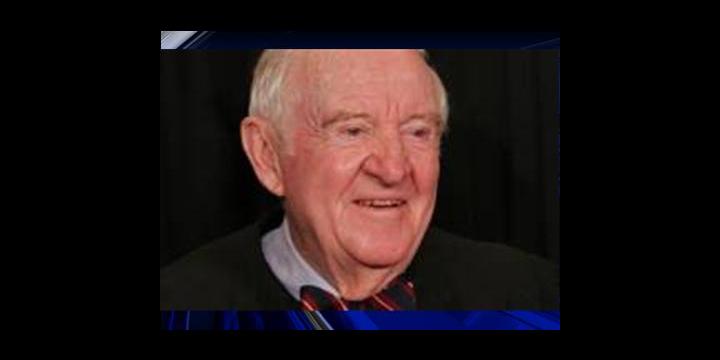SENATOR: Stevens' retirement would lead to 'gridlock'BIOS: Meet the Supreme Court, 2009-2010He suggested to USA TODAY last fall that he had stayed on the court into his 80s out of concern for its ideological turn to the right."The makeup of the court has changed dramatically," he observed. He expressed his frustration in a 2007 dissenting opinion when a 5-4 conservative majority stopped schools in Louisville and Seattle from considering race in student assignments to spur integration.Stevens contended the rule set back school desegregation, writing: "It is my firm conviction that no member of the court that I joined in 1975 would have agreed with today's decision."In the March interview, Stevens added, "As you can tell from my dissents, there are a lot of cases that I'm disappointed with and I think they make mistakes. But you learn to live with it."
A changing courtJustice Stevens' tenure coincided with a three-decade ideological transformation of the Supreme Court. Virtually all successive justices moved the bench to the right.Appointed by President Ford, Stevens first secured a place at the center of a court dominated by liberal Justices William Brennan, Thurgood Marshall and Harry Blackmun. In the early years, Stevens often found himself writing lone concurring or dissenting opinions, finding a home on neither the right nor left.One of his most important early decisions came in 1978, upholding federal regulatory power to prohibit offensive broadcast material during certain hours. The case began when a New York radio station aired comedian George Carlin's "seven dirty words" monologue. The father of a young boy who heard the midday monologue complained to the FCC, and the agency sanctioned the Pacifica Foundation station.Writing for a five-justice majority, Stevens referred to radio's "uniquely pervasive presence in the lives of all Americans" and said, "Words that are commonplace in one setting are shocking in another." That decision did not deal with the one-time utterance of an expletive, and three decades later Stevens dissented when a more conservative majority said the FCC also could ban the one-time use of an expletive on the air.Through the years, as President Reagan, the first President Bush, and then the second President Bush added more conservative justices, Stevens found himself firmly on the left of the bench. He became the leader of the liberal wing in 1994 when Justice Blackmun retired.In the past 15 years, he became a more vigorous supporter of affirmative action and a strong critic of the conservatives' effort to diminish the federal government's power to become involved in state affairs. He dissented repeatedly as the majority struck down federal laws, such as, in 1995, a measure that banned guns near local schools. "Justice Stevens certainly did have larger principles, including a view of a strong national government and strong nation, coming from his experiences in war," said Emory University law professor Robert Schapiro, a former Stevens law clerk. Yet he added that Stevens tended to look at each case on its individual merits rather than try to apply a sweeping judicial philosophy. "He was definitely the kind of judge who thought: 'You get each case right.' He became influential one case at a time." As the most senior among the liberal justices, Stevens had the power to assign the opinion for the majority when the left prevailed. He could have claimed the opinion for himself in major cases, yet he often relinquished it to keep a fragile coalition together by assigning it to the fifth vote or an otherwise crucial justice.Stevens wrote the court's 2002 opinion ruling the executions of mentally retarded defendants unconstitutional. Three years later, though, he assigned Kennedy the majority opinion banning the execution of juveniles.In 2007, Stevens concluded the death penalty should be abolished, separating himself from the rest of his colleagues at the time, all of whom supported capital punishment. "A penalty with such negligible returns to the state (is) patently excessive and cruel and unusual punishment violative of the Eighth Amendment," he wrote.Scalia denounced Stevens' position. "This conclusion is insupportable as an interpretation of the Constitution, which generally leaves it to democratically elected legislatures rather than courts to decide what makes significant contribution to social or public purposes," Scalia wrote.One of Stevens' most notable writings in a face-off with the conservative wing came in the 2000 case of Bush v. Gore. He dissented in the ruling that stopped the Florida recounts in the presidential election and put George W. Bush in the White House. "Although we may never know with complete certainty the identity of the winner of this year's presidential election, the identity of the loser is perfectly clear," Stevens wrote. "It is the nation's confidence in the judge as an impartial guardian of the rule of law."With Stevens' departure, the next most senior justice on the left is Ruth Bader Ginsburg, who was appointed by Clinton in 1993. Ginsburg, 77, has twice survived serious battles with cancer and could retire in upcoming years. After Ginsburg, the next most senior justice would be Stephen Breyer, a 1994 Clinton appointee who is now 71. "When someone leaves and another person comes on, the dynamics really change," Georgetown's Harris says. "There's not another justice on the court who has the same depth and length of experience, who has built up over time the same relationships, and who has the same interest in playing that leadership role on the court."/>
Justice Stevens to retire from Supreme Court
A silver-haired, self-effacing man, Stevens worked effectively withswing votes Sandra Day O'Connor, who served until 2006, and AnthonyKennedy, the justice currently in the middle of an ideologically splitcourt.


